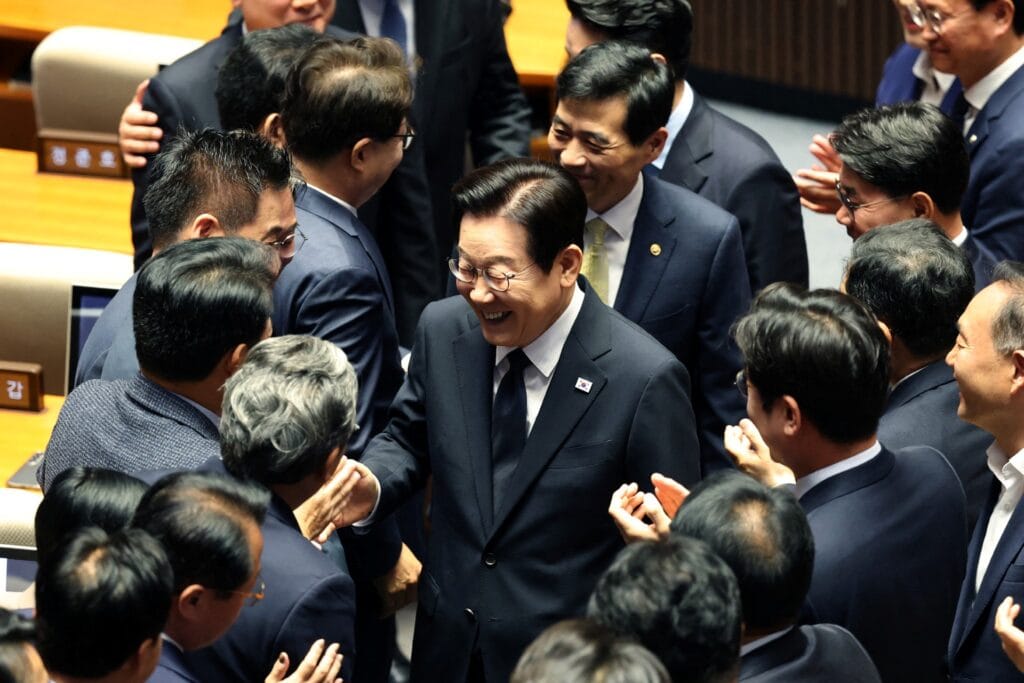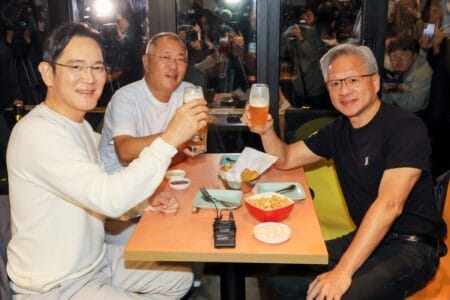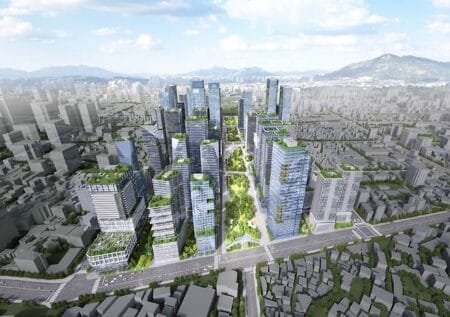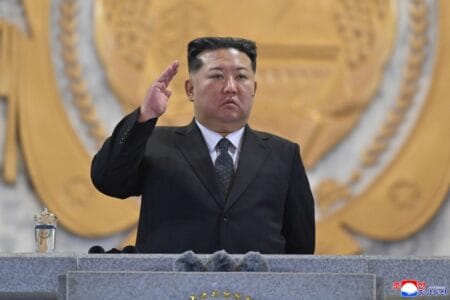November 5, 2025
SEOUL – President Lee Jae Myung on Tuesday outlined a 728 trillion won ($506 billion) budget plan for 2026, calling it “Korea’s first budget to open the AI era” and pledging sweeping investments to make the country a global leader in artificial intelligence.
Addressing the National Assembly in Seoul, Lee said the government would allocate 10.1 trillion won — triple this year’s amount — to accelerate the nation’s transition to an AI-driven economy.
“During the industrialization era, being a day late meant falling a month behind; in the information age, it meant falling a year behind. But in the AI age, being a day late means falling a generation behind,” Lee said, calling the transition to an AI-based society “inevitable for national survival.”
He criticized the previous administration for “wasting precious time and even cutting spending in research and development,” saying the country must now make up for the delay.
“Because our start was late, we must move faster than ever to catch up with the frontrunners if we are to have a chance,” he said.
Lee compared the initiative to the nation’s mega development drives led by past presidents. He said the late President Park Chung-hee, a military strongman who ruled the country from 1963 to 1979, built the highways of industrialization that propelled Korea’s manufacturing boom, while the late President Kim Dae-jung, a civilian leader who served from 1998 to 2003, expanded nationwide digital networks that laid the highways of informatization.
“Now we must construct the highways of the AI era to open a new future of growth,” Lee said.
The 2026 budget marks an 8.1 percent increase from this year and is the first full-year budget under the Lee administration, which took office on June 4. Of the total, 2.6 trillion won will go toward introducing AI across industrial, daily and public sectors, while 7.5 trillion won will support talent development and infrastructure building.
Lee said the government will purchase an additional 15,000 high-performance graphics processing units — key components that determine competitiveness in the AI era — to secure a total of 35,000 units earlier than planned. “With Nvidia set to supply 260,000 such processors to Korea, private companies will also face no difficulties in obtaining them,” he added.
Lee also vowed to raise national defense spending by 8.2 percent to 66.3 trillion won, saying the government would foster the defense industry as a key growth sector in the AI age.
“Through R&D investment and the discovery of startups with advanced technologies, we will cultivate the defense sector into a leading manufacturing industry and lay the groundwork to become one of the world’s top four defense exporters,” he said.
He underscored the need for self-reliant defense capabilities, calling the issue a matter of national pride. “Korea spends 1.4 times North Korea’s annual gross domestic product on defense and ranks as the world’s fifth-largest military power, but still relies on external forces for its security,” he added.
Lee’s speech also detailed expanded welfare measures, including raising the median income standard by a record 6.51 percent to ensure at least 2 million won in monthly basic living support for a four-member household. The child allowance will extend from age 7 to 8, and senior employment programs will expand from 1.1 million to 1.15 million jobs.
“Protecting vulnerable groups most affected by technological change is the state’s basic duty,” Lee said. “AI will reshape society, and the government must ensure that no one is left behind in that transition.”
Lee’s address also included briefings on the outcomes of last week’s Asia-Pacific Economic Cooperation meetings, highlighting his bilateral talks with US President Donald Trump and Chinese President Xi Jinping. Lee said the meetings resulted in the conclusion of tariff negotiations with the US and progress in consultations with Washington over Seoul’s bid to build nuclear-powered submarines.
However, the session was boycotted by the main opposition People Power Party, which was protesting a request made by a special counsel the previous day to detain Rep. Choo Kyung-ho.
Choo served as the party’s floor leader until December 2024, shortly after then-President Yoon Suk Yeol declared martial law on Dec. 3.
Democratic Party spokesperson Rep. Moon Dae-lim condemned the opposition’s boycott as “a dereliction of duty.”
“Last year, President Yoon refused to deliver the budget speech, and this year, the People Power Party boycotted it. This absurd relay of boycotts is nothing but a political show,” Moon said.
He was referring to the 2024 budget speech, at which Yoon was not in attendance. The former president cited political gridlock ion the National Assembly as the reason for having his prime minister present the plan in his absence.







